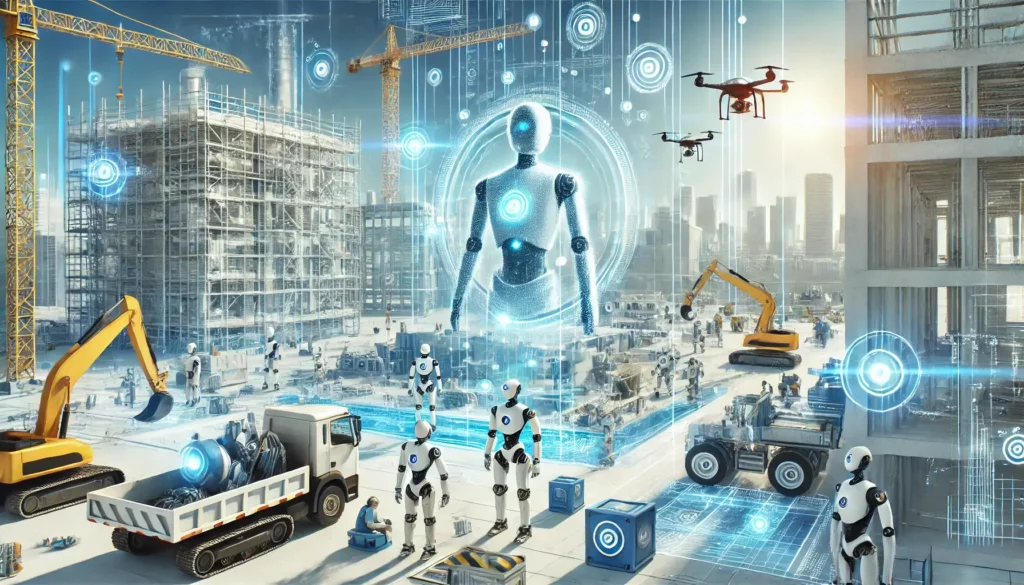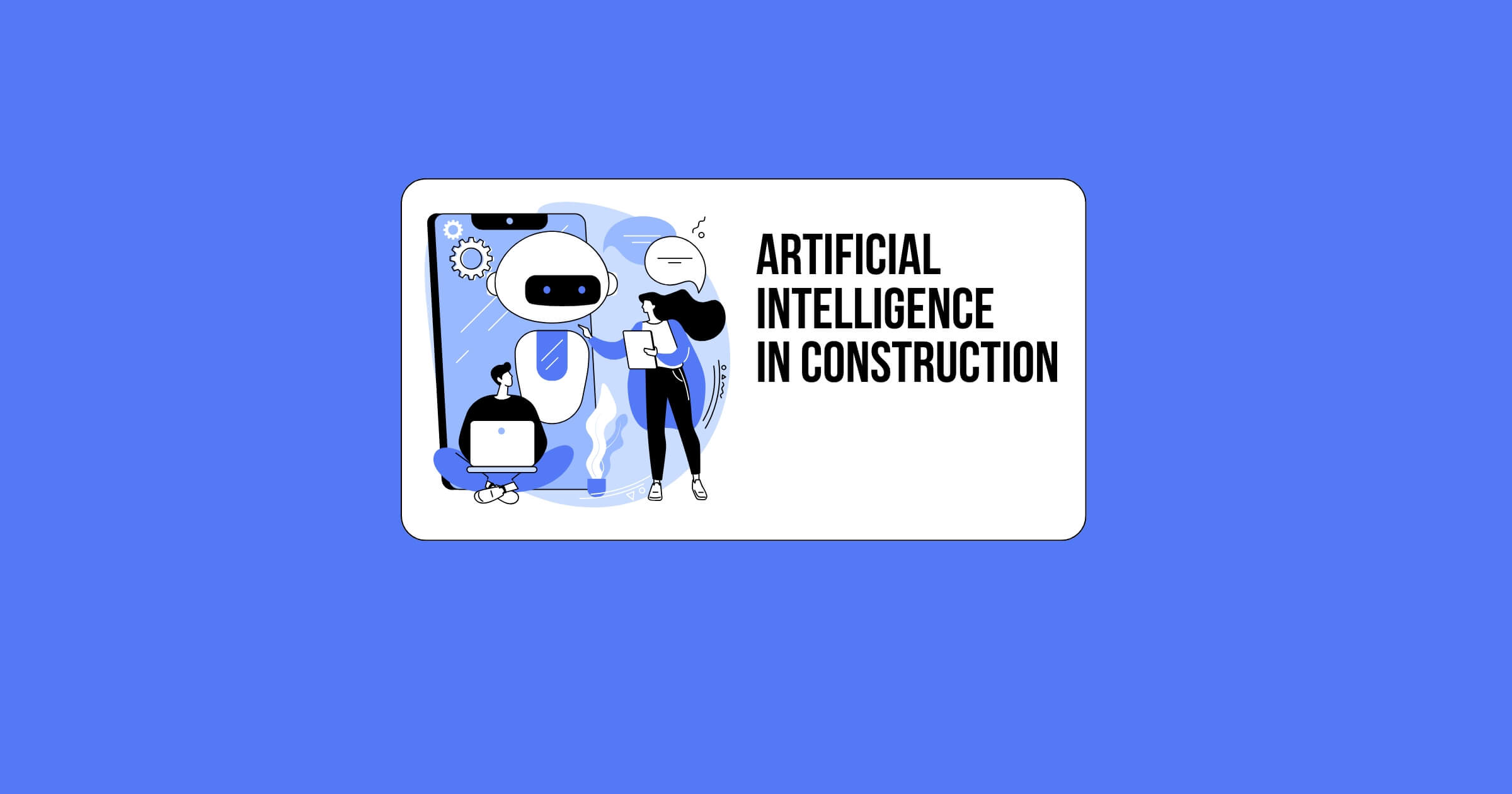Agentic AI represents the next step of evolution in artificial intelligence and intelligent agents. Like many other industries, the construction industry is likely to undergo a dramatic transformation in the way projects are completed thanks to the development of AI agents. Whether it’s helping architects create multiple design iterations based on input constraints or dynamically adjusting schedules as delays happen in projects, AI agents will make processes faster and more efficient.
How is agentic AI different from generative AI?
Most generative AI programs follow clear instructions given by humans and solve them using machine learning. They perform specific tasks well but can’t operate independently to complete complex tasks. This is where Agentic AI systems are different—they operate autonomously with minimal human supervision needed. This is different from traditional AI because it makes decisions and takes actions by itself.
For example, regular AI models in a smartphone app might suggest a route based on a map, but it won’t change directions on its own if there’s a sudden roadblock. An AI agent, however, can adjust your route instantly based on new information without waiting for you to make changes or approvals.
This ability to make decisions on its own and work as an agent makes agentic AI far more useful and versatile in solving complex problems. To further understand, here is a detailed breakdown of the differences between AI tools and AI agents:
| Function | AI Tools | AI Agents |
| Decision-Making | Provides insights for humans to act on | Acts autonomously, adjusting in real-time |
| Adaptability | Works within predefined rules | Continuously learns and improves |
| Workflow Impact | Assists with specific tasks | Manages and optimizes entire workflows |
| Problem-Solving | Requires human intervention | Solves problems dynamically |
| Automation Level | Partial automation | Fully autonomous actions |
| Project Integration | Works in isolated systems | Coordinates across multiple platforms |
8 practical agentic AI use cases

1. AI agents in architecture
Agentic AI systems could soon create building designs with minimal human intervention. For example, an AI agent might automatically draft floor plans by independently considering sunlight, noise, energy efficiency, and local building rules. It could also adjust designs in real-time as conditions or requirements change based on specific goals. This would include coordinating with construction teams, automatically resolving design conflicts using real-time data, and learning from past projects to suggest better ideas next time. This may seem like a reach, but the functionality of artificial intelligence networks makes this a possibility.
How close are we to making AI agents this sophisticated?
While it may sound years away, at the pace at which AI is progressing, we could see agentic AI systems reach a level similar to that of a human agent within the next couple of years or even months.
2. AI agents in engineering
Engineers juggle a variety of tasks that require problem-solving and data management. These tasks are perfect for autonomous AI agents to handle or assist with while they focus on decision-making processes. Instead of waiting for human input at every step, these agents can work like virtual assistants alongside engineers, offering insights and automating processes to speed up projects and reduce costly errors.
A great example of this is SPREAD’s Agentic Engineering Intelligence (El). This agentic AI system connects with various engineering tools and pulls data into a single workspace. It can be used in the aerospace industry to build better-performing designs or in manufacturing to design ideal production processes.
3. Agentic AI in construction project management
Construction projects are often slowed down by delays, scheduling headaches, and last-minute changes that throw everything off track. With agentic automation, if a shipment of materials is late, it can flag the issue and automatically reorganize the work schedule so crews don’t have to stand around waiting.
Another agentic AI assistant use case in construction could be managing permit applications. Oftentimes, these come with technical specifications and guidelines. Agentic AI can easily store these guidelines in its memory and then use them for specific permit applications to ensure the applications meet the standard required. The use of AI agents for building approvals would greatly increase the efficiency of the process.
4. AI agents in manufacturing & supply chain management
If there is any sector in which AI agents are making a difference, it’s manufacturing. Complicated and repetitive tasks that once required constant human oversight are now being fully automated thanks to AI agents and robotic process automation. In most cases, the AI-powered robots are working alongside humans. However, there have been reports recently that “dark factories” have emerged in Japan and China—factories in which autonomous systems handle every aspect of production, from material handling to production.
One real-world example is Siemens’ Amberg Electronics Plant, where AI-driven automation has helped achieve 99.99% accuracy in production. The factory uses AI-powered systems to track complex business processes, spot problems as they happen, and fix them. This ability of AI technology to automate and make independent decisions has led to fewer defects, less downtime, and improved efficiency.
5. Agentic AI in cybersecurity
Construction companies often handle sensitive data like building plans, employee information, and client details. Without proper cybersecurity safety protocols, privacy concerns can arise. Agentic AI helps protect all of this information by detecting threats faster than humans can. It learns from patterns and immediately reacts if something unusual happens—like stopping a cyber attack before it can harm the company.
One example is AI spotting phishing emails—fake emails trying to trick you into giving out important information. AI agents can instantly detect suspicious email addresses and block these threats before workers accidentally open them.
6. Agentic AI in marketing and sales
Agentic AI is making marketing and sales easier for construction companies. These autonomous AI tools take care of specific tasks that improve customer engagement.
For example, AI agents from Conversica can automatically answer questions from customers by replying to emails, texts, or chat messages. This helps construction companies reply without the need to use customer service agents. It also improves customer satisfaction by ensuring no potential client is overlooked.
Another way these AI agents help is by studying customer data to understand what people really want. They notice patterns, like which new product customers are most interested in, and provide real-time insights on customer purchasing behavior. With this relevant data, companies can create a wide range of products and services personalized to customer needs.
7. AI agents in legal and compliance
In construction, rules can change frequently, and staying up-to-date is challenging. AI agents can automatically monitor legal updates, ensuring the company always knows what is required in their business operations. This helps construction companies stay compliant, reduce risk, and focus on their main job—building safely and efficiently.
8. Agentic AI and improving safety
Using drones and intelligent camera systems equipped with computer vision allows agentic AI systems to continuously scan sites to detect hazards like unsecured scaffolding, workers not wearing proper PPE, or dangerous proximity to equipment. These AI systems can provide real-time alerts, send notifications to site managers and human resources instantly, and allow preventive action before accidents occur, significantly improving safety compliance.
A great example of a company leading the way in safety and AI integration is AIM. Headquartered in Bellevue, Washington, AIM has developed an AI system designed to independently operate heavy construction machinery such as bulldozers, excavators, and skid steers. In certain situations like working in mines, having AI operate heavy equipment is safer.
The future of agentic AI in the construction industry
In the coming years, expect the use cases of agentic AI to increase. Investments are flowing into the sector from financial institutions and the government, with cloud computing data centers receiving 500 billion in funding in the United States alone. With that much funding available for software development, large language models like ChatGPT will improve their natural language processing power leading to improved decision-making capabilities.
In turn, this means more intelligent systems that can handle vast amounts of data and be used for various applications.
This may include having access to agentic AI assistants that can manage entire construction projects, from initial planning to final execution. Whether that’s coordinating various trades on-site, dynamically managing supply chains, and even autonomously resolving unexpected design issues in real-time, agentic AI could be responsible for tasks once thought only humans would be able to perform.
As impressive as AI Tools already are, currently, they are prone to errors in most fields outside of manufacturing and have a ways to go before complicated routine tasks can be fully automated with minimal human intervention. However, with the construction sector having major issues in securing labor and producing enough housing in North America, their future promises a solution worth building.
How soon this will become a reality is hard to say. AI experts are torn, some stating it will come sooner than we think, while others are far more skeptical.
Bottom line
The construction industry stands at a pivotal juncture. The creation of agentic AI systems provides an actionable path forward for overcoming long-standing industry challenges. By automating complex processes such as real-time decision-making, risk assessment, and dynamic schedule management, AI agents greatly accelerate business processes compared to traditional methods relying on manual coordination.
As these emerging technologies mature, construction companies have a unique opportunity to optimize enterprise workflows, improve customer experience, and secure a strategic competitive advantage in an increasingly complex and demanding marketplace.
Want to stay updated on the latest AI developments in the construction industry? Subscribe to our newsletter to get the most up to date information delivered straight to your inbox!


